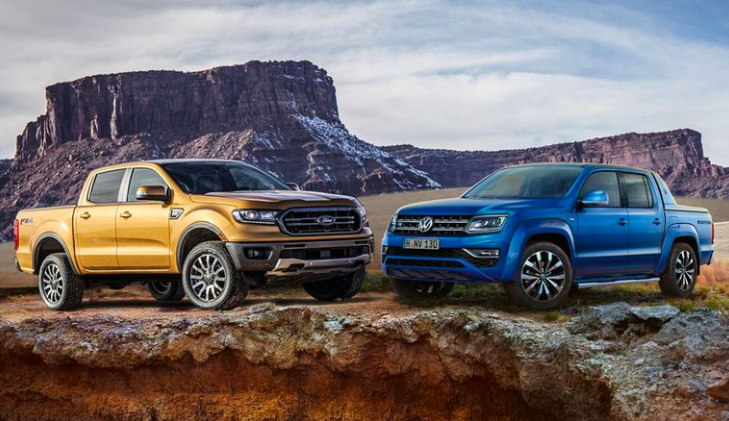
Photo: Car and Driver
Ford Motors and Volkswagen announced Friday that they will partner to jointly develop electric and self-driving cars — in a union that plays to the strength of each company, Ford having an advantage on self-driving cars and Volkswagon on electric cars. Volkswagen, since its settlement for fraud violations concerning pollution control systems on their diesel-fueled cars, has been working to bring to market next year a fully electric model called the ID.3, that it will sell for $34,000, making it affordable for middle-income buyers. As a result, Ford will introduce a vehicle in Europe made from VW components in 2023, and plans to sell 600,000 electric cars over six years.
Why This Matters: These are challenging times for the auto companies according to The New York Times, profits are falling (because of slower car sales globally) and at the same time they need to invest in new technologies to achieve the increasingly stringent emissions-reduction standards in Europe and China. So joint ventures are a good way for the companies to share the costs and risks of the research and development. Meanwhile, on Friday, the Trump Administration went the opposite way — suspending a 2016 regulation from the Obama Administration that more than doubled penalties for failing to adhere to fuel efficiency requirements, which the Administration is also trying to loosen. But as long as Europe and China keep tighter emissions standards in place, the U.S. automakers will need to develop the next generation of zero-emission vehicles regardless of U.S. standards.
Other Car Companies Are Already Collaborating on Advanced Cars.
- Honda and General Motors are collaborating with Honda putting billions of dollars into Cruise, which G.M. values at $19 billion.
- Toyota and Uber are working together on a self-driving car.
- Mercedes and BMW are also working together on self-driving cars that they boast will be driving on the autobahn by 2024.
- In addition, many automotive suppliers are collaborating on autonomous technology.
- And new companies, like Waymo (owned by Google’s parent company) have been working on self-driving cars for many years and currently operates an experimental fleet of 600 self-driving taxis in Phoenix that it hopes to grow.
Argo Is Ford’s Future
- Volkswagen will move its autonomous vehicle project, which is based in Munich, into Argo AI, a Ford-backed start-up that is “working on sensors, software and other technologies to enable cars to drive themselves.”
- For Ford and Argo, Volkswagen adds muscle to their effort because “Volkswagen is the world’s largest automaker by sales volume and has a huge global footprint,” Mike Ramsey, an industry expert told The Times. “The potential market for Argo technology is much bigger than with Ford alone.”
- But the company is also hedging its bets — announcing back in April that it would invest $500 million in Rivian, a different start up that is developing an electric pickup truck and sport utility vehicle.
July 14, 2019 » autonomous vehicles, cars, electric vehicles, Ford, General Motors, volkswagen


